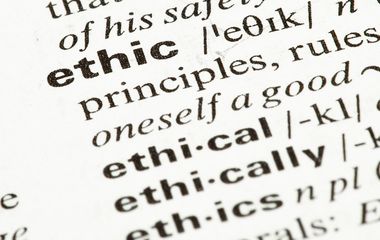
About Us
The Standards Commission is an independent body whose purpose is to encourage high ethical standards in public life through the promotion and enforcement of Codes of Conduct for councillors and those appointed to the boards of devolved public bodies.
Application of Article 10 of ECHR at Hearings of the Standards Commission
30th June 2017
The Standards Commission, at a recent hearing, determined that two councillors of Edinburgh City Council who had publicly identified staff in public, in the context of Council failings of project management, had not breached the Councillors’ Code of Conduct. This was because of the enhanced protection afforded by the European Convention on Human Rights. The case is considered to be of particular significance as the Standards Commission outlined the approach its Hearing Panels will take when issues concerning the application of Article 10 of the European Convention on Human Rights (ECHR) arise.
In reaching its decision, a Hearing Panel will take following approach. Firstly, it will consider whether the facts found at a hearing lead it to conclude, on the balance of probabilities, that the Respondent has failed to comply with the Councillors’ Code of Conduct. Secondly, if so, it will then consider whether such a finding in itself was prima facie a breach of the right to freedom of expression under Article 10 of the ECHR (as incorporated in the Human Rights Act 1998). Thirdly, if so, the Hearing Panel will proceed to consider whether the restriction involved by the finding was justified by Article 10(2), which allows restrictions that are necessary in a democratic society (in particular for this case for the protection of the reputation or rights of others).
The approach will be applied in cases where a Respondent, as a politician taking part in a discussion or raising matters of public concern, is accused of having contravened the Councillors’ Code of Conduct by being discourteous and / or disrespectful. The Standards Commission recognises that, in such circumstances, a Hearing Panel will be required to undertake a balancing exercise. This will involve weighing the Respondent’s right to an enhanced freedom of expression against any benefits afforded by the provision of the Code in respect of protecting the rights of others, such as fellow politicians and officers.
In this particular case, the Hearing Panel found that the councillors had been discourteous and disrespectful by publicly identifying five Council officials at a public meeting of Edinburgh Council’s Governance, Risk and Best Value Committee in the context of a discussion about accountability for alleged failings in the management of a Community Centre building project. Although the names were disclosed without either councillor making any critical comment, a clear inference could be drawn from the reading out of the names that those staff may have had some responsibility for any failures in respect of the Council’s management of the project. However, the Hearing Panel also found that the councillors had legitimate grounds for concern about the project and for taking the view that the Council Committee would not commission further reports without being convinced there were still officials employed by the Council who could assist with inquiries. The rationale of identifying staff was done for that purpose. In the specific circumstances of this case, the Hearing Panel took the view that, as local politicians taking part in a discussion on matter of public concern, the councillors should be afforded the enhanced protection of freedom of expression under Article 10 of the ECHR. The Panel also found that the councillors’ right to this enhanced protection when performing their scrutiny role in an open and transparent way was not outweighed by the benefit of protecting officers from the potential inference that they had been involved in any of the alleged failings.
The Hearing Panel concluded that whilst it was regrettable that the five officers were named, this did not constitute a breach of the Councillors’ Code of Conduct in light of the application of the enhanced protection enjoyed by the councillors concerned to the right to freedom of expression. The full written decision can be found here http://www.standardscommissionscotland.org.uk/cases/case-list .

